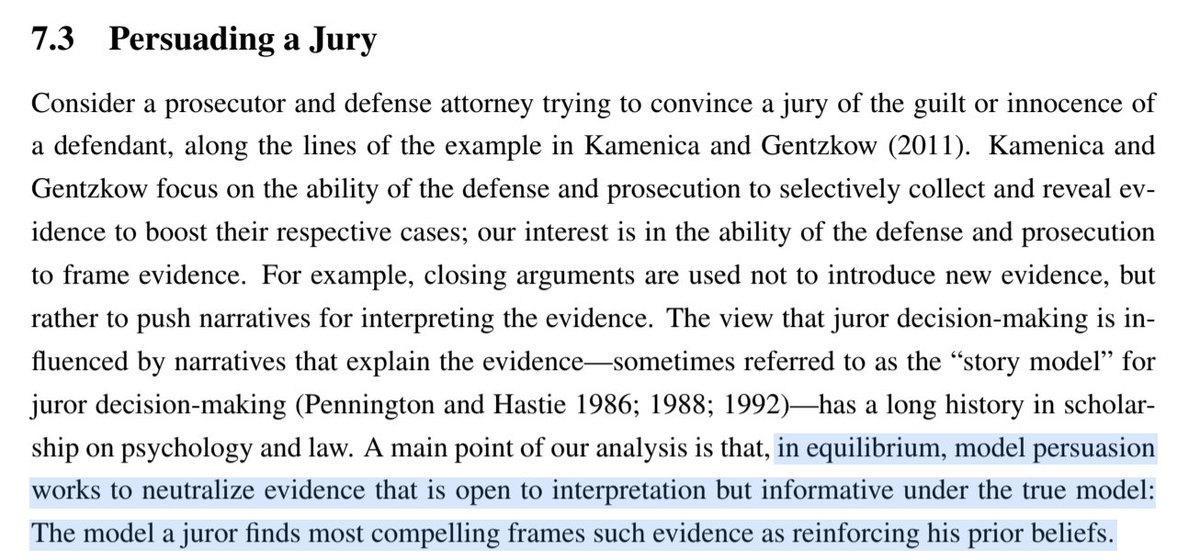What are we doing when we argue about financial market patterns? Why do lawyers try to appeal to a jury's prejudice? A thread on the recently-published "Models to Persuade" by Schwartzstein & Sunderam. https://bit.ly/3rHNWWk 1/
This is a "big idea" paper with an idea that is deceptively simple and "already known": A Model is compelling if Model + data + prior are more plausible than some alternative model. They build this simple idea into a versatile framework for thinking about public discourse. 2/
If a persuader tries to get a receiver to adopt a new model of the world (e.g. stock price or startup success prediction), they are constrained by the receiver's prior and the data: new model needs to be more plausible than the old model and therefore cannot be too "unusual" 3/
"Unusual" means plausible under the receiver's priors - this has an interesting implication for what happens when there are competing models (boosters vs bashers, climate change vs deniers etc): catering to priors helps you win the argument EVEN IF THE PRIORS ARE WRONG. 4/
Competition in persuasion implies that even someone who knows the truth might want to make up a story that fits the receiver's bias better in order to preempt stories of the world that are wrong but more "comforting" by confirming priors. 5/
Uncomfortable implications for public advocacy: when the truth about ambiguous data (policy X is great) would lose out to a wrong theory (policy X is bad for prior-affirming reasons), bending the truth toward biases might get something closer to the truth adopted. 6/
Sounds familiar to academic debates: a new theory may be correct and radically different, but needs to be framed as being a smaller deviation from existing models in order to convince old-school researchers. Data that is "off" under the prior makes new models more convincing. 7/7

 Read on Twitter
Read on Twitter





